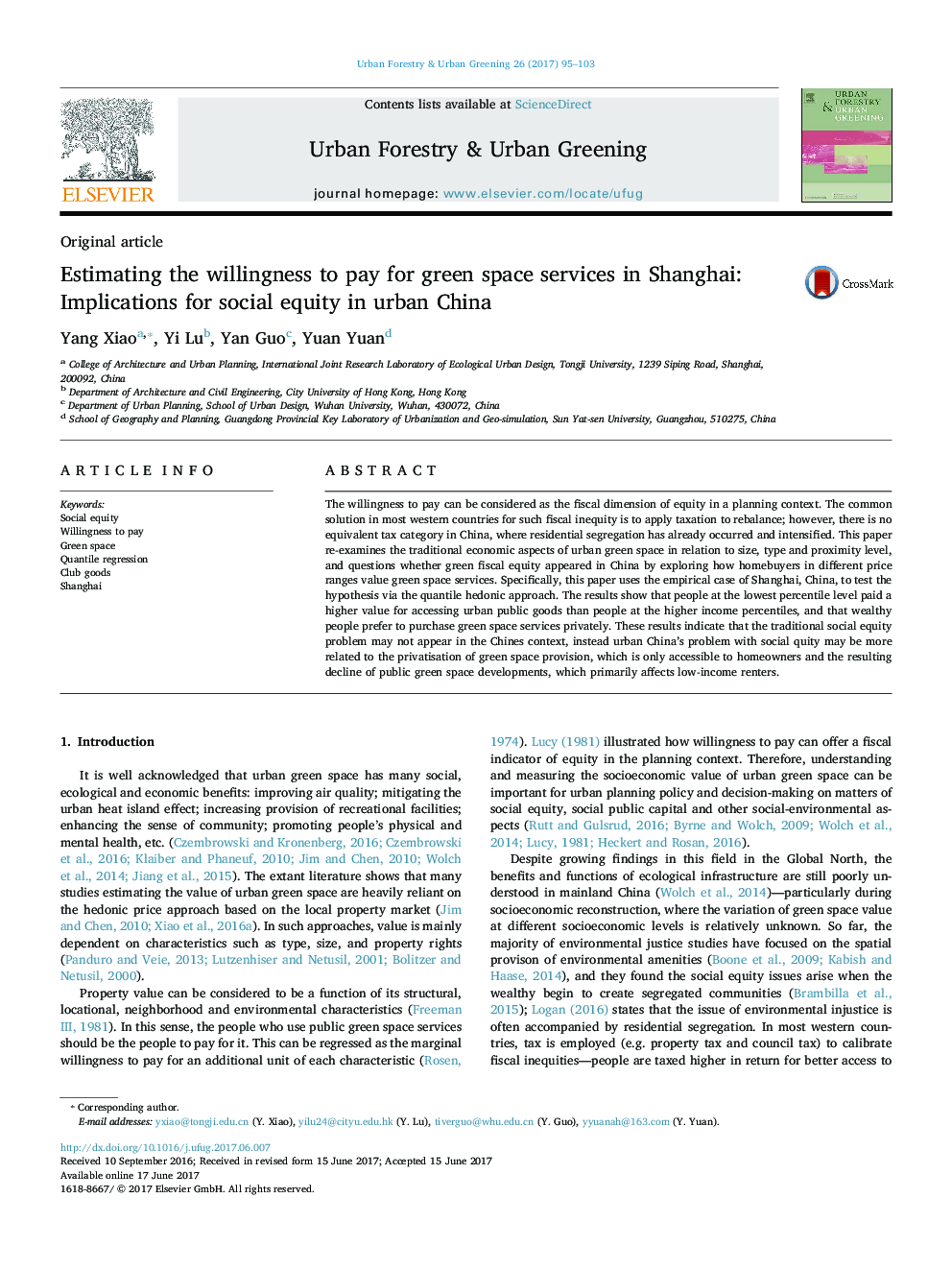| Article ID | Journal | Published Year | Pages | File Type |
|---|---|---|---|---|
| 6461832 | Urban Forestry & Urban Greening | 2017 | 9 Pages |
The willingness to pay can be considered as the fiscal dimension of equity in a planning context. The common solution in most western countries for such fiscal inequity is to apply taxation to rebalance; however, there is no equivalent tax category in China, where residential segregation has already occurred and intensified. This paper re-examines the traditional economic aspects of urban green space in relation to size, type and proximity level, and questions whether green fiscal equity appeared in China by exploring how homebuyers in different price ranges value green space services. Specifically, this paper uses the empirical case of Shanghai, China, to test the hypothesis via the quantile hedonic approach. The results show that people at the lowest percentile level paid a higher value for accessing urban public goods than people at the higher income percentiles, and that wealthy people prefer to purchase green space services privately. These results indicate that the traditional social equity problem may not appear in the Chines context, instead urban China's problem with social quity may be more related to the privatisation of green space provision, which is only accessible to homeowners and the resulting decline of public green space developments, which primarily affects low-income renters.
